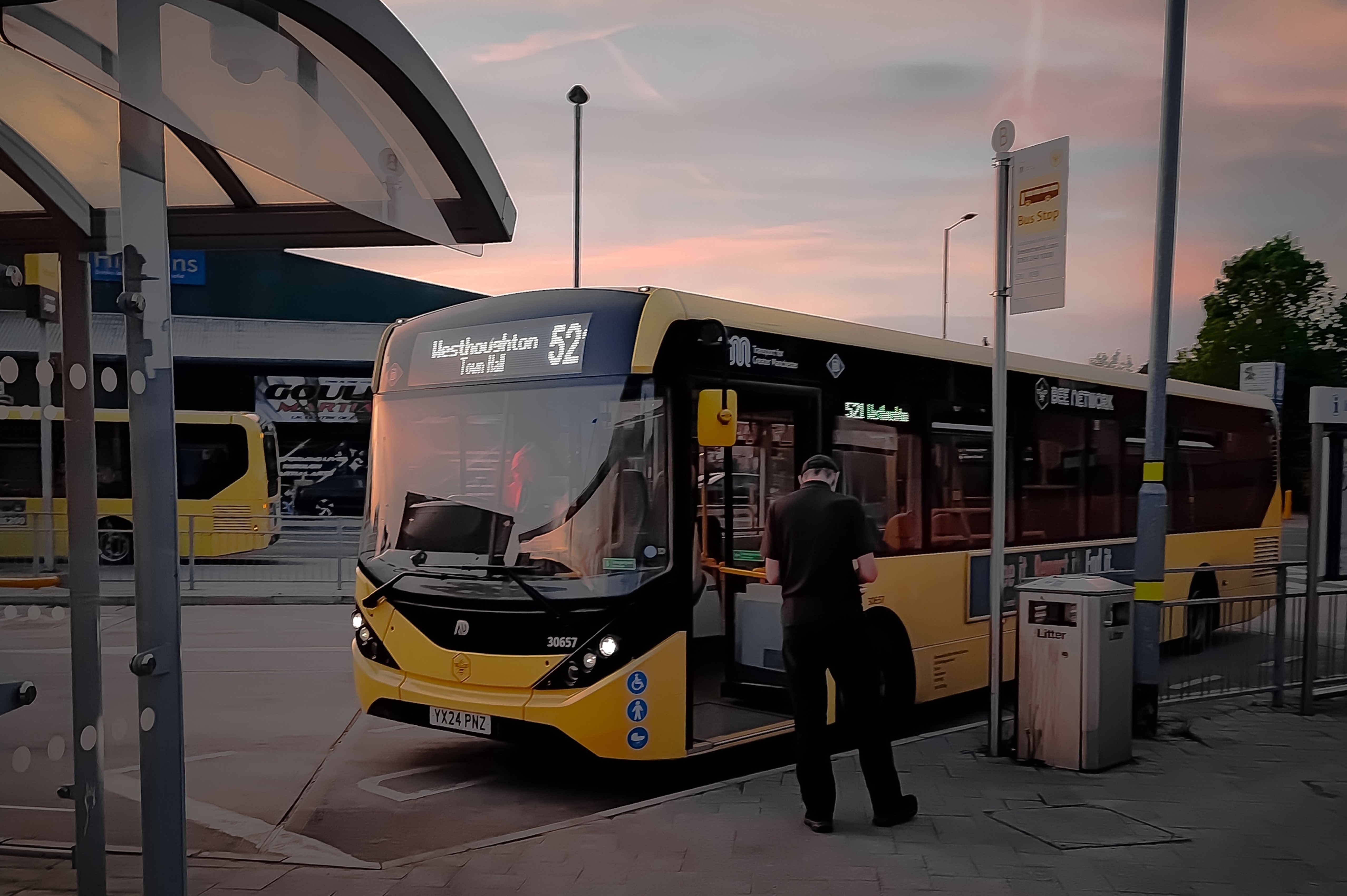

Of all the plans for decarbonising public transport unveiled by local authorities around the UK, Manchester’s Bee Network may be the most ambitious.
Join other savvy professionals just like you at CIHT. We are committed to fulfilling your professional development needs throughout your career
By Johnny Sharp
Earlier this year, as he announced further expansion of the scheme to introduce contactless pay-as-you-go bus travel, Mayor of Greater Manchester Andy Burnham said, “The Bee Network is the key to unlocking a new green revolution across Greater Manchester… We’re making rapid progress to electrify our bus fleet and our depots, and are on track to have a full electric network by 2030.” Vernon Everitt, Transport Commissioner for Greater Manchester, stated, “We are starting to make real progress in offering options that encourage fewer journeys by car.”
The figures would appear to back up such bullish talk. As well as the increase in electric vehicles, over the past year there has been move away from deregulated (privatised) buses to local authority-controlled franchises in Manchester, during which time, Everitt claimed at the start of 2025, nearly seven million more journeys had been made compared with the previous year – up 5 percent. He also said punctuality had improved and revenue was “running ahead of forecast”.

Image: Bee Network bus stopping in Farnworth, Bolton. Credit: Shutterstock.
Matthew Topham, who helped lead the Better Buses for Greater Manchester campaign that fuelled changes in the city, which in turn inspired similar campaigns in West Yorkshire, Glasgow and other areas, stresses the importance of changing focus in encouraging greener transport behaviour.
“It changes the financial and wider planning incentives so that it works in the interest of passengers,” he says. “And if it works in the interest of passengers, you get more of them. The hope is that it’ll persuade more of them onto buses, and that's how you start to deliver a more climate impactful transport network.”
That impact comes from encouraging the ‘modal switch’ many campaigners have identified as a key component of decarbonisation on our transport networks. “It’s about making a better experience for the passenger,” explains Topham. “Does your bus turn up on time? Does it go where you need it to go? Is it affordable? Those are the three biggest things, and the reason they matter for the climate is that they are the biggest levers we have for convincing people that it's worth leaving the car at home, maybe going from being a two-car household to one and generally decreasing car usage.”

Matthew Topham, who helped lead the Better Buses for Greater Manchester campaign that fuelled changes in the city, which in turn inspired similar campaigns in West Yorkshire, Glasgow and other areas, stresses the importance of changing focus in encouraging greener transport behaviour.
“It changes the financial and wider planning incentives so that it works in the interest of passengers,” he says. “And if it works in the interest of passengers, you get more of them. The hope is that it’ll persuade more of them onto buses, and that's how you start to deliver a more climate impactful transport network.”
That impact comes from encouraging the ‘modal switch’ many campaigners have identified as a key component of decarbonisation on our transport networks. “It’s about making a better experience for the passenger,” explains Topham. “Does your bus turn up on time? Does it go where you need it to go? Is it affordable? Those are the three biggest things, and the reason they matter for the climate is that they are the biggest levers we have for convincing people that it's worth leaving the car at home, maybe going from being a two-car household to one and generally decreasing car usage.”
With government plans like the Zero Emission Bus Regional Areas (ZEBRA) and ZEBRA 2 programmes funding the switch to electric buses in areas such as Nottinghamshire, Hull and Brighton, the general direction of travel looks positive, while the example set by the Bee Network is echoed by proposals in other UK regions, Topham reports. “We see it in [the] Liverpool City region, West Yorkshire, we're talking about it in South Yorkshire, and the Northeast – many taking very similar approaches to Manchester,” he enthuses.
Making these upgraded transport networks visibly different to passengers and a talking point within communities is another part of the challenge, Topham points out.
“For example, the Northeast are proposing to call theirs the Angel Network, and although that visual identity, that storytelling, is perhaps not proven to be key, I think it makes a lot of sense. Even down to painting buses a different colour. People see that the bus network, the transport network looks different, and they can actually have it operate in a different way, which serves them.”
The same system won’t suit every region, of course, as Topham acknowledges: “If you start looking at North Yorkshire versus West Yorkshire, the former is much more rural. So, one challenge will be to adjust the design of the bus network for those regional differences. But for example, there may be ways to cross-subsidise the quieter, more rural routes or evening services with the profits from busy commuter routes.”
As for next steps, Topham says the drive to improve our transport networks doesn’t stop there: “We also need to start having the conversation about not just, ‘Can you do what Manchester has done?’ but ‘Can you do better?’”
Read how CIHT responded to the Transport Committee’s inquiry on ‘Buses connecting communities’ in February.
Join CIHT’s Bus Centre of Excellence.
Image: Bee Network bus stopping in Farnworth, Bolton. Credit: Shutterstock.
Join other savvy professionals just like you at CIHT. We are committed to fulfilling your professional development needs throughout your career
{{item.AuthorName}} {{item.AuthorName}} says on {{item.DateFormattedString}}: